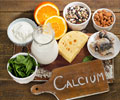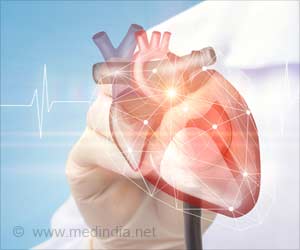Coronary calcium in heart arteries provides important clues about risk, even among younger and elderly patients and those without traditional risk factors.

A new Johns Hopkins study, which will be presented as a poster at the American Heart Association Scientific Sessions in Orlando on November 16, indicates that the calcium scoring test may be useful for certain patients under age 45 and also for selected people over age 75, in addition to those in between. According to the study's findings, younger people with a higher amount of calcium had a much greater incidence of heart disease compared with elderly people whose arteries were calcium free.
"We found that the risk of a heart attack or the need for coronary stents or bypass surgery was eight times greater among people under age 45 who had high levels of calcium in their coronary arteries compared with patients over age 75 whose vessels did not contain calcium," says Michael Blaha, M.D., one of the study authors from The Johns Hopkins Heart and Vascular Institute.
The researchers studied 6,800 participants from the Multi-Ethnic Study of Atherosclerosis (MESA) who had a calcium scoring test without a diagnosis of heart disease and were followed for six years. The researchers evaluated the rate of heart attacks, need for stents or bypass surgery, or death due to heart disease, in conjunction with the extent of calcium in study participants' coronary arteries. They concluded that chronological age and health of heart arteries (arterial age) are not the same and that you cannot assume someone's risk is higher or lower based on age.
"Our study indicates that the calcium scoring test may benefit both younger and older people in terms of refining their true heart disease risk. It can help us identify a subset of younger people at higher risk who should make substantial lifestyle modifications and possibly take cholesterol-lowering medication and aspirin. For older individuals without calcium in their arteries, it means they do not need routinely prescribed cholesterol-lowering medications or aspirin because they are at a lower risk of a heart attack," says Rajesh Tota-Maharaj, M.D., the lead author of the study, titled: "Coronary Artery Calcium Predicts Coronary Heart Disease Events, Even at the Extremes of Age: The Multi-Ethnic Study of Atherosclerosis."
Calcium deposits form in the later stages of atherosclerosis, a process in which cholesterol plaques develop within arteries that supply blood to the heart. Higher levels of calcium usually indicate more severe atherosclerosis, leading to blockages that can starve the heart muscle of blood. This process can result in heart attacks-and even death in some instances.
Advertisement
"We found that the risk of a heart attack or the need for stents or bypass surgery was three times higher among people with no traditional risk factors for heart disease if they had moderate levels of calcium in their coronary arteries, compared with individuals with three or more traditional risk factors whose arteries do not have calcium," says lead author Michael Silverman, M.D. Traditional risk factors include smoking, high blood pressure, high cholesterol and diabetes.
Advertisement
"We can stop the progression and even modestly reverse the development of atherosclerosis with lifestyle modifications that include eating a healthy diet, exercising, quitting smoking and taking cholesterol-lowering medications," says Roger S. Blumenthal, M.D., professor of medicine and director, Johns Hopkins Ciccarone Center for the Prevention of Heart Disease. Blumenthal, who is a senior author on both studies, adds, "It is for these reasons that it is important to identify patients who are at risk so that we can help them take steps to prevent a heart attack or stroke."
Source-Newswise














